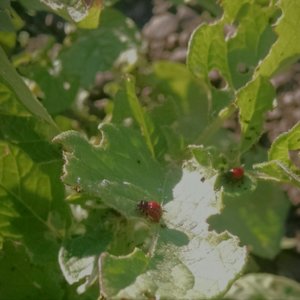valley ranch
Garden Master
- Joined
- Dec 22, 2014
- Messages
- 5,740
- Reaction score
- 5,736
- Points
- 367
In the greenhouse I've always used Garlic Tea with mild soap added.
No snails just slugs and roly polies.Mary do you get the giant snails, that LA has?

 of my plants. We'd had so much rain I didn't even think that I would need to keep an eye on watering this past couple weeks but I was wrong
of my plants. We'd had so much rain I didn't even think that I would need to keep an eye on watering this past couple weeks but I was wrong hopefully I won't need to buy any neem oil when I go shopping Sunday.
hopefully I won't need to buy any neem oil when I go shopping Sunday. 